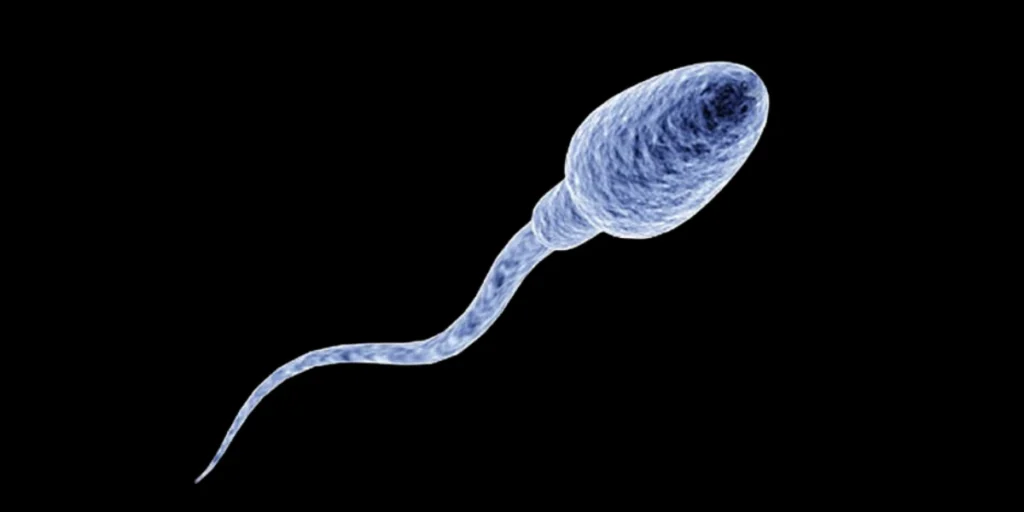What Are Causes of Abnormal Sperm? Medical Guide to Male Fertility
Introduction
Male fertility is one of the cornerstones of reproductive health, and the quality of sperm plays a defining role in a couple’s ability to conceive. Abnormal sperm is one of the leading contributors to male infertility, with studies estimating that sperm disorders are involved in nearly 50% of infertility cases worldwide.
This article explores the biological, environmental, lifestyle, and medical causes of abnormal sperm in detail, while also addressing important related questions such as age-related sperm decline, stress, liquefaction, and sperm survival.
1.Understanding What Are Causes of Abnormal Sperm
Before identifying what are causes of abnormal sperm, it is important to define what “abnormal” means medically. A semen analysis evaluates sperm health through count, motility, morphology, and volume.
- Sperm count: ≥15 million per milliliter
- Motility: ≥40% should be motile (able to swim)
- Morphology (shape): ≥4% with normal shape
- Volume: 1.5–6.0 mL per ejaculation
Sperm are considered abnormal if they:
- Appear misshapen (e.g., double heads, coiled tails, oversized or undersized heads)
- Have poor swimming ability (low motility)
- Are too few in number
- Fail to liquefy properly after ejaculation
👉 “If you are concerned about your sperm health, you can use our free Male Fertility Score Calculator to get a quick assessment of your fertility potential based on evidence-based parameters.”
2.Biological Causes of Abnormal Sperm
a) Genetic Disorders
Certain genetic abnormalities can directly impact sperm production and quality.
- Klinefelter syndrome (47,XXY) – Men with this condition have an extra X chromosome, leading to impaired testicular development and reduced sperm production.
- Y chromosome microdeletions – Missing sections of genetic material on the Y chromosome can prevent sperm formation.
- Cystic fibrosis mutations – While best known as a lung disease, cystic fibrosis can cause congenital absence of the vas deferens, blocking sperm transport.
Genetics may not always completely stop sperm production, but they often contribute to abnormal morphology and motility.
b) Hormonal Imbalances
Sperm production is regulated by a delicate balance of hormones:
- Testosterone (produced in the testes)
- Luteinizing hormone (LH) and follicle-stimulating hormone (FSH) (from the pituitary gland)
Any disruption in this hormonal axis can lead to abnormal sperm development. For example, low testosterone levels (hypogonadism) or excessive prolactin (hyperprolactinemia) often reduce both sperm count and quality.
c) Varicocele
Varicocele, a condition where veins in the scrotum become enlarged, is one of the most common reversible causes of abnormal sperm. The abnormal blood flow increases scrotal temperature, which damages sperm morphology and motility. Studies suggest that varicocele repair can significantly improve semen parameters in many men.
d) Infections
Sexually transmitted infections (STIs) and other genital infections can damage sperm.
- Chlamydia and gonorrhea may cause blockages and scarring in the reproductive tract.
- Mumps orchitis (mumps infection affecting the testes) can cause permanent damage and abnormal sperm morphology.
- Chronic prostatitis can impair sperm liquefaction, making it harder for sperm to swim.
3.Lifestyle-Related Causes of Abnormal Sperm
Modern lifestyle habits contribute significantly to abnormal sperm production.
a) Smoking and Alcohol
- Smoking is strongly linked with oxidative stress, which damages the DNA inside sperm and alters morphology.
- Heavy alcohol consumption disrupts testosterone production, leading to reduced sperm quality.
b) Poor Diet and Obesity
- Diets low in antioxidants (like vitamin C, vitamin E, zinc, and selenium) increase free radical damage to sperm.
- Obesity leads to hormonal imbalance, reduced testosterone, and impaired sperm production.
c) Heat Exposure
Sperm production requires a temperature slightly below body temperature. Frequent use of hot tubs, saunas, tight clothing, or prolonged laptop use on the lap can raise scrotal temperature, causing abnormal sperm development.
d) Stress and Lack of Sleep
Chronic stress increases cortisol, which suppresses testosterone production. Poor sleep also disrupts hormonal rhythms, reducing sperm health.
4.Medical Conditions That Cause Abnormal Sperm
a) Chronic Illnesses
- Diabetes mellitus – Associated with DNA damage in sperm and reduced motility.
- Kidney or liver disease – Can affect hormone levels and sperm production.
- Thyroid disorders – Both hyperthyroidism and hypothyroidism can reduce sperm quality.
b) Cancer and Its Treatment
- Testicular cancer itself may disrupt sperm production.
- Chemotherapy and radiation therapy often damage spermatogenesis permanently or temporarily.
C) Autoimmune Reactions
In some cases, a man’s immune system produces antibodies against his own sperm, impairing their movement and fertilizing ability.
5.Environmental and Occupational Causes
Certain exposures in the workplace or environment are well-known for causing abnormal sperm.
- Pesticides and herbicides – Agricultural workers face higher risks of sperm damage.
- Heavy metals – Lead, cadmium, and mercury exposure harm sperm DNA.
- Industrial chemicals – Phthalates and bisphenol A (BPA), found in plastics, disrupt hormones and reduce sperm quality.
- Radiation exposure – Both medical and occupational radiation sources can impair spermatogenesis.
6.Medications That Affect Sperm
Certain prescription drugs may unintentionally contribute to abnormal sperm.
- Anabolic steroids – Suppress natural testosterone and sperm production.
- Anti-depressants (SSRIs) – May impair motility in some men.
- Chemotherapy drugs – Toxic to rapidly dividing cells, including sperm.
- Finasteride (for hair loss or prostate issues) – Can alter sperm parameters in some cases.
Men who must take these medications should always consult their doctor about fertility preservation, such as sperm banking.
7.Age and Abnormal Sperm
Unlike women, men do not have a strict “fertility expiration date,” but sperm quality does decline with age.
- Men over 40 often show decreased sperm motility and higher DNA fragmentation.
- Older paternal age is associated with increased risk of autism spectrum disorders and schizophrenia in offspring.
8.What Age Do Guys Stop Producing Sperm?
One of the most common myths about male fertility is that men can father children at any age without consequence. While it is true that men produce sperm throughout life, the quality of sperm changes with age.
- Sperm production continues for life – Unlike women, men do not undergo menopause. Spermatogenesis (sperm formation) persists into advanced age.
- Decline in quality after 40 – Studies show that sperm motility, morphology, and DNA integrity decline after the age of 40–45.
- Fertility outcomes affected – Older men have lower chances of successful conception, even when their partners are young. Risks of miscarriage and genetic conditions (such as autism or schizophrenia) increase with paternal age.
So, men never truly stop producing sperm, but the risk of abnormal sperm rises significantly with age, making conception more difficult.
9.Can Stress Cause Watery Sperm?
Yes. Stress is a well-documented factor that influences sperm quality, including semen volume and consistency.
- Hormonal effects – Stress elevates cortisol, which suppresses testosterone and disrupts spermatogenesis.
- Semen changes – High stress levels can lead to watery semen, reduced sperm concentration, and abnormal motility.
- Lifestyle link – Stress is often accompanied by poor sleep, unhealthy diet, alcohol, or smoking, which further worsen sperm quality.
10.Can Watery Sperm Get You Pregnant?
This is a question many men ask, especially when they notice changes in semen consistency.
- Yes, watery sperm can still cause pregnancy if it contains enough motile, healthy sperm.
- Consistency is not always equal to fertility – The thickness of semen is influenced by proteins from the prostate and seminal vesicles. Even watery semen may contain millions of sperm capable of fertilizing an egg.
- When it becomes a concern – If watery semen persists for more than 2–3 months, or is accompanied by low sperm count on a semen analysis, it may indicate underlying abnormal sperm.
In summary, occasional watery sperm is usually harmless, but chronic watery semen may signal reduced fertility and should be evaluated by a doctor.
11.How to Improve Sperm Liquefaction Time Naturally
Liquefaction refers to the process where semen, which is initially thick, becomes liquid within 20–30 minutes after ejaculation. This change allows sperm to swim freely toward the egg.
- Normal liquefaction time – 20 to 30 minutes
- Delayed liquefaction – If semen takes too long to liquefy, sperm mobility may be reduced, contributing to abnormal sperm function.
Natural ways to improve liquefaction:
- Stay hydrated – Proper hydration improves semen fluidity.
- Balanced diet – Zinc, vitamin C, and antioxidants (from fruits, nuts, and vegetables) support normal semen consistency.
- Reduce alcohol and caffeine – Both can thicken semen and delay liquefaction.
- Avoid infections – Prostatitis and seminal vesicle infections often disrupt liquefaction. Treating these conditions restores normal semen function.
- Exercise regularly – Physical activity improves blood circulation and hormonal balance, aiding semen quality.
If liquefaction remains abnormal, medical tests (including semen analysis and infection screening) are necessary.
12.How Long Can Sperm Survive in Male Urethra?
The survival of sperm depends on the environment in which they are released. Inside the male urethra, sperm are relatively short-lived compared to inside the female reproductive tract.
- In the male urethra – Sperm may survive only a few minutes after ejaculation if not expelled, due to unfavorable conditions (pH, lack of nutrients).
- Inside the female reproductive system – Sperm can survive up to 5 days in cervical mucus, waiting for an egg to be released.
- Practical point – Residual sperm in the urethra can sometimes be expelled during the next ejaculation, which is why unprotected sex soon after withdrawal may still carry a pregnancy risk.
13.Link Between Medical Conditions and Abnormal Sperm
Beyond lifestyle and age, certain chronic medical conditions directly contribute to abnormal sperm production.
- Diabetes – Causes oxidative stress, DNA fragmentation, and erectile problems.
- Varicocele – Increases scrotal heat, damaging sperm morphology.
- Infections – Mumps orchitis, prostatitis, and STIs impair sperm function.
- Obstructive disorders – Blocked vas deferens or ejaculatory ducts prevent sperm from mixing properly with seminal fluid, sometimes leading to watery or low-volume ejaculates.
These conditions require medical diagnosis and targeted treatment to improve sperm quality.
Can the Mumps Make You Infertile?
- Yes, mumps infection—particularly when it affects the testes after puberty—can damage fertility.
- Mumps orchitis (swelling of the testicles due to mumps virus) occurs in up to 30% of infected post-pubertal males.
- In severe cases, testicular tissue is permanently scarred, leading to reduced sperm count and abnormal sperm production.
- Bilateral orchitis (both testes affected) is especially dangerous, often resulting in lifelong infertility.
Vaccination (MMR vaccine) remains the best preventive measure against mumps-related infertility.
14.Why Do Some Men Get Soft During Sex?
While erectile dysfunction is not directly a cause of abnormal sperm, it often coexists with reduced fertility.
- Psychological causes – Stress, anxiety, or depression may cause difficulty maintaining erections.
- Physical causes – Diabetes, cardiovascular disease, and low testosterone can impair erectile function.
- Link to sperm – Poor erectile quality does not always indicate abnormal sperm, but both conditions may share common underlying issues such as hormonal imbalance or vascular disease.
15.Environmental and Occupational Factors
As mentioned earlier, toxins and chemicals play a large role in abnormal sperm production. To reinforce:
- Heat exposure – Factory workers, drivers, and welders often have higher rates of sperm abnormalities due to constant scrotal heat.
- Radiation – Healthcare workers and radiologists face fertility risks without proper protection.
- Chemicals – Solvents, pesticides, and plastic-derived chemicals can alter sperm morphology and DNA.
Protective measures, including workplace safety protocols and antioxidant supplementation, may mitigate these risks.
Conclusion
Practical Steps to Improve Sperm Quality
- Healthy diet – Rich in antioxidants (fruits, vegetables, nuts, fish).
- Exercise – Regular, moderate activity improves testosterone and sperm production.
- Quit smoking and alcohol – Eliminates key sources of oxidative stress.
- Maintain healthy weight – Obesity is linked to hormonal imbalance and abnormal sperm.
- Medical check-ups – Screening for varicocele, infections, and hormonal disorders.
- Avoid prolonged heat exposure – Loose underwear, breaks from hot tubs, and avoiding prolonged laptop use on the lap.
- Stress management – Meditation, therapy, or relaxation techniques to balance cortisol and testosterone.
Frequently Asked Questions
- Can Age Influence What Are Causes of Abnormal Sperm?
Yes. As men get older, sperm motility and DNA quality decline. After 40, the risk of abnormal sperm increases due to natural aging, hormonal changes, and oxidative stress.
- Does Stress Play a Role in What Are Causes of Abnormal Sperm?
Chronic stress raises cortisol levels, which lowers testosterone and disrupts sperm production. This hormonal imbalance makes stress a key factor in what are causes of abnormal sperm and male infertility.
- How Do Medical Conditions Contribute to What Are Causes of Abnormal Sperm?
Conditions like diabetes, varicocele, thyroid disease, and autoimmune reactions can interfere with sperm production. These health issues explain what are causes of abnormal sperm beyond lifestyle or age.
- Are Environmental Toxins Part of What Are Causes of Abnormal Sperm?
Yes. Exposure to heavy metals, industrial chemicals (like BPA), and prolonged heat can damage sperm morphology and motility. These external factors are often overlooked in discussions of what are causes of abnormal sperm.
- How Can Men Reduce What Are Causes of Abnormal Sperm Naturally?
Improving diet, exercising, quitting smoking, reducing alcohol, and managing stress are proven ways to reduce what are causes of abnormal sperm naturally. Medical evaluation is also essential if problems persist.
References
- American Urological Association (AUA) – Male Infertility Guidelines
https://www.auanet.org/guidelines-and-quality/guidelines/male-infertility-guideline - Mayo Clinic – Male Infertility: Causes and Diagnosis
https://www.mayoclinic.org/diseases-conditions/male-infertility/symptoms-causes/syc-20374770 - Cleveland Clinic – Sperm Health and Male Fertility
https://my.clevelandclinic.org/health/diseases/21889-male-infertility - National Institutes of Health (NIH) – Environmental Exposures and Male Reproductive Health
https://www.ncbi.nlm.nih.gov/books/NBK279067/ - Johns Hopkins Medicine – Varicocele and Male Fertility
https://www.hopkinsmedicine.org/health/conditions-and-diseases/varicocele - Centers for Disease Control and Prevention (CDC) – Mumps and Male Infertility
https://www.cdc.gov/mumps/about/complications.html - American Society for Reproductive Medicine (ASRM) – Sperm Morphology and Semen Analysis
https://www.reproductivefacts.org/news-and-publications/patient-fact-sheets-and-booklets/documents/fact-sheet/semen-analysis/ - Harvard Health Publishing – Lifestyle and Male Fertility
https://www.health.harvard.edu/newsletter_article/how-lifestyle-choices-affect-male-fertility - World Health Organization (WHO) – Laboratory Manual for the Examination and Processing of Human Semen
https://www.who.int/publications/i/item/9789240030787 - MedlinePlus – Male Reproductive System and Fertility
https://medlineplus.gov/malereproductivesystem.html - Healthline – Causes of Abnormal Sperm and Male Infertility
https://www.healthline.com/health/male-infertility - British Fertility Society – Male Fertility Factors
https://www.britishfertilitysociety.org.uk/male-infertility/ - Mayo Clinic – Hormones and Male Fertility
https://www.mayoclinic.org/tests-procedures/hormone-tests/about/pac-20384835 - NIH – Effects of Aging on Male Fertility
https://www.ncbi.nlm.nih.gov/pmc/articles/PMC4896081/ - American Society for Reproductive Medicine – Impact of Environmental Toxins on Sperm Quality
https://www.reproductivefacts.org/news-and-publications/patient-fact-sheets-and-booklets/documents/fact-sheet/environmental-toxins-and-male-fertility/


